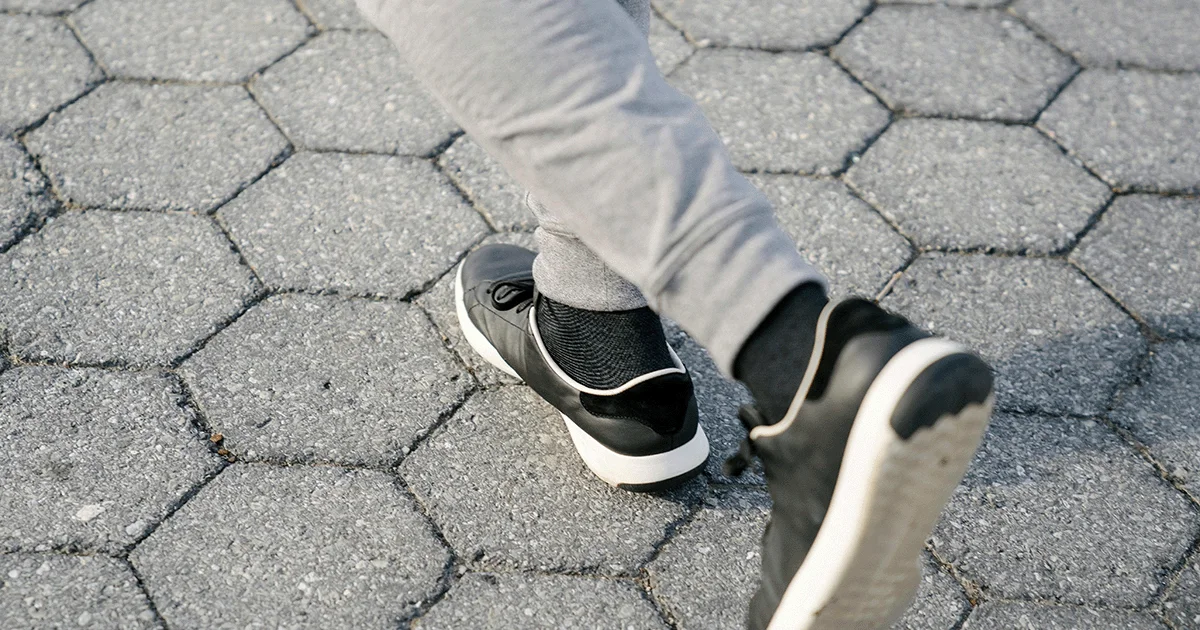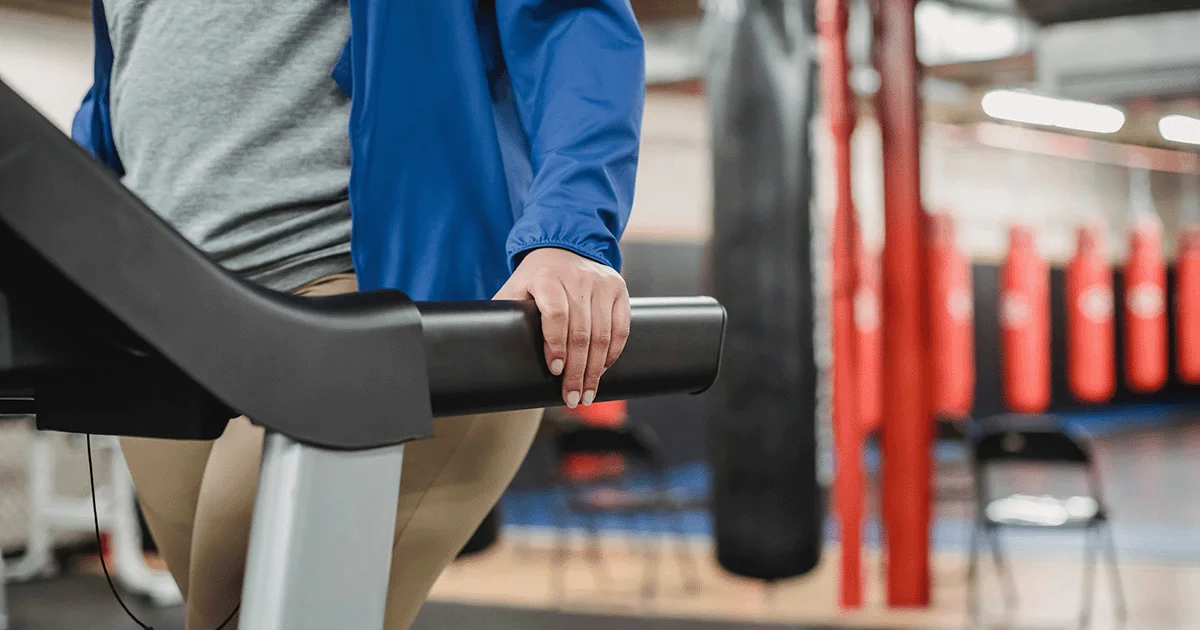Here's what we'll cover
Here's what we'll cover
Here's what we'll cover
Embarking on a weight loss journey? Let's talk about that friend who shows up at every party - alcohol. Beyond the good times, it can seriously mess with your progress by affecting your metabolism, decision-making, and sleep patterns. Alcohol has been associated with increased calorie intake and, in the case of binge drinking, an increased risk of obesity. Here’s what to know about the link between alcohol and weight loss.
Does alcohol make you gain weight?
The short answer is yes. Alcohol can make you more likely to gain weight.
People often drink alcohol while eating a meal or bar snacks. Because alcohol impacts decision making (more on this later), you may end up eating more than you normally would and consuming more calories overall, especially when compared to drinking water with your meal. Alcoholic drinks are more likely to be high in sugar and empty calories (calories that don’t offer much in the way of nutrients). Alcohol also affects your digestive system, disrupting your metabolism and tricking your brain into thinking you’re hungrier than you really are.
A study of moderate drinkers found that biological men tend to consume an extra 168 calories when they drink. While the researcher didn’t observe a similar effect in biological women, they did find that all participants consumed more fats and made poorer food choices on the days that they drank alcohol.
How does alcohol affect weight loss?
The relationship between alcohol and weight is complex, but there is a link between alcohol and overeating. Alcohol is also considered a risk factor for obesity, but not necessarily for all individuals. For some people, low to moderate alcohol consumption may not lead to weight gain.
Here are some factors that help explain the effects of alcohol on weight loss.
1. Alcohol has a lot of calories
Alcohol, especially craft beers and cocktails with multiple ingredients, has a high sugar content. Sugar contains a lot of calories, and those extra calories may turn into fat.
One study measured the calorie counts of biological men and women on their heaviest drinking day of the week. Calories from alcohol made up 27% and 19%, respectively, of their recommended daily caloric intake.
2. Fat from alcohol gathers around the belly
Unfortunately, “beer belly” is not just a myth or a synonym for “dad bod.” Foods and drinks that contain high amounts of simple sugars, like sugary drinks and candy, add extra calories to your diet that are stored as fat. As much as we wish we could, we can’t control where our fat ends up. And often, fat accumulates around the belly.
What people call “belly fat” typically refers to two types of abdominal fat. The first is subcutaneous fat, located just under your skin. Below that you’ll find visceral fat that protects and warms your organs around your midsection. Having too much visceral fat can be bad for your health.
3. Alcohol affects your judgment
Alcohol affects your decision-making and lowers your inhibitions. So when you drink, you may find yourself saying yes to eating more than you normally would or and eating more foods that are high in fat like pizza or a late-night Taco Bell run.
Overeating while drinking may stem from alcohol’s effects on the brain. In one study, researchers gave mice ethanol (alcohol) over three days. All of the mice significantly increased their food intake.
4. Alcohol slows your metabolism
Not only does alcohol make you want to eat more, but it also disrupts your body’s digestion. Alcohol can make it harder for your stomach and intestines to function normally. So, your body may have a harder time moving food through your digestive tract and breaking it down into the nutrients you need.
Chronic overdrinking for years can cause you to develop alcoholic liver disease, which affects how your liver metabolizes and stores proteins, carbohydrates, and fats. As a result, losing weight may become more difficult the longer you keep up unhealthy drinking habits.
5. Alcohol affects your hormone levels
Alcohol may lower your sex hormone levels, including testosterone. Testosterone plays a key role in the process of metabolism and your body’s ability to burn fat. Low testosterone levels may increase your risk of metabolic syndrome (a group of conditions that raise your cholesterol, blood pressure, blood sugar levels), and type 2 diabetes. Metabolic syndrome, in turn, increases your risk of cardiovascular disease.
Finally, although we often think of alcohol as a sedative (because it is), it also impacts your quality of sleep. Lower sleep quality causes sleep deprivation, affecting many bodily functions, including hormone production. Poor quality sleep can wreak havoc on the hormones that regulate your appetite. In particular, sleep deprivation raises levels of ghrelin, the hormone that alerts you when you’re hungry, and lowers levels of leptin, the hormone that tells you you’re full.
What’s the best alcohol to drink for weight loss?
If you’re not ready to say goodbye to alcohol, there are several lower-calorie liquor options. For example, a 1.5-oz shot of vodka, whiskey, gin, rum, tequila, or brandy only contains 100 calories. If you’re a wine drinker, a 5-oz glass of red wine contains 125 calories, while white wine contains 120. A 4-oz flute of champagne contains 85 calories.
When it comes to beer, the lighter the beer, the better. A 12-oz glass of regular beer contains 145 calories, while craft beer packs 170 calories or more. Light beer, on the other hand, usually only has about 105 calories.
Here are some more tips for preventing weight gain from alcoholic beverages:
Avoid frozen drinks and mixed cocktails. Extra ingredients typically spell extra calories. A 9-oz piña colada contains 490 calories, while a 4-oz margarita contains 170 calories.
Watch out for sweeteners. Instead of a mixed drink, opt for a shot on the rocks. For mixers, try club soda or sparkling water. You can also add fruit to sweeten things, like tequila with lime or olives with gin.
Practice other ways to manage your alcohol consumption. Sip slowly and alternate with water. Practice portion control by using a smaller glass.
In general, drinking less is better than drinking more—for your weight loss goals and overall health. However, if you like to have a drink once in a while, that’s okay. Drink alcohol in moderation, swap the super-sugary cocktail for a shot on the rocks, a light beer, or a glass of wine, and speak to your healthcare provider to make sure alcohol consumption is safe for you.
DISCLAIMER
If you have any medical questions or concerns, please talk to your healthcare provider. The articles on Health Guide are underpinned by peer-reviewed research and information drawn from medical societies and governmental agencies. However, they are not a substitute for professional medical advice, diagnosis, or treatment.
References
Battista, K. & Leatherdale, S. T. (2017). Estimating how extra calories from alcohol consumption are likely an overlooked contributor to youth obesity. Health Promotion and Chronic Disease Prevention in Canada: Research, Policy and Practice , 37 (6), 194–200. doi:10.24095/hpcdp.37.6.03. Retrieved from https://pubmed.ncbi.nlm.nih.gov/28614047/
Brenes, J. C., Gómez, G., Quesada, D., et al. (2021). Alcohol contribution to total energy intake and its association with nutritional status and diet quality in eight Latin American countries. International Journal of Environmental Research and Public Health , 18 (24), 13130. doi:10.3390/ijerph182413130. Retrieved from https://pubmed.ncbi.nlm.nih.gov/34948740/
Breslow, R. A., Chen, C. M., Graubard, B. I., et al. (2013). Diets of drinkers on drinking and nondrinking days: NHANES 2003-2008. The American Journal of Clinical Nutrition , 97 (5), 1068–1075. doi:10.3945/ajcn.112.050161. Retrieved from https://pubmed.ncbi.nlm.nih.gov/23535109/
Cains, S., Blomeley, C., Kollo, M., et al. (2017). Agrp neuron activity is required for alcohol-induced overeating. Nature Communications , 8 , 14014. doi:10.1038/ncomms14014. Retrieved from https://pubmed.ncbi.nlm.nih.gov/28072397/
Cederbaum, A. I. (2012). Alcohol metabolism. Clinics in Liver Disease , 16 (4), 667–685. doi:10.1016/j.cld.2012.08.002. Retrieved from https://pubmed.ncbi.nlm.nih.gov/23101976/
Cooper, C. B., Neufeld, E. V., Dolezal, B. A., & Martin, J. L. (2018). Sleep deprivation and obesity in adults: a brief narrative review. BMJ Open Sport & Exercise Medicine , 4 (1), e000392. doi:10.1136/bmjsem-2018-000392. Retrieved from https://pubmed.ncbi.nlm.nih.gov/30364557/
Dietary Guidelines Advisory Committee (DGAC). (2020). Scientific Report of the 2020 Dietary Guidelines Advisory Committee: Advisory Report to the Secretary of Agriculture and the Secretary of Health and Human Services . doi:10.52570/DGAC2020. Retrieved from https://www.dietaryguidelines.gov/2020-advisory-committee-report
Duca, Y., Aversa, A., Condorelli, R. A., et al. (2019). Substance abuse and male hypogonadism. Journal of Clinical Medicine , 8 (5), 732. doi:10.3390/jcm8050732. Retrieved from https://pubmed.ncbi.nlm.nih.gov/31121993/
MedlinePlus. (2020). Low-calorie cocktails. Retrieved from https://medlineplus.gov/ency/patientinstructions/000732.htm
Park, S. Y., Oh, M. K., Lee, B. S., et al. (2015). The effects of alcohol on quality of sleep. Korean Journal of Family Medicine , 36 (6), 294–299. doi:10.4082/kjfm.2015.36.6.294. Retrieved from https://pubmed.ncbi.nlm.nih.gov/26634095/
Rao, P. M., Kelly, D. M., & Jones, T. H. (2013). Testosterone and insulin resistance in the metabolic syndrome and T2DM in men. Nature Reviews. Endocrinology , 9 (8), 479–493. doi:10.1038/nrendo.2013.122. Retrieved from https://pubmed.ncbi.nlm.nih.gov/23797822/
Rocco, A., Compare, D., Angrisani, D., et al. (2014). Alcoholic disease: liver and beyond. World Journal of Gastroenterology, 20 (40), 14652–14659. doi:10.3748/wjg.v20.i40.14652. Retrieved from https://www.ncbi.nlm.nih.gov/pmc/articles/PMC4209531/
Shelton, N. J. & Knott, C. S. (2014). Association between alcohol calorie intake and overweight and obesity in English adults. American Journal of Public Health , 104 (4), 629–631. doi:10.2105/AJPH.2013.301643. Retrieved from https://pubmed.ncbi.nlm.nih.gov/24524529/
Traversy, G. & Chaput, J. P. (2015). Alcohol consumption and obesity: An update. Current Obesity Reports , 4 (1), 122–130. doi:10.1007/s13679-014-0129-4. Retrieved from https://pubmed.ncbi.nlm.nih.gov/25741455/










